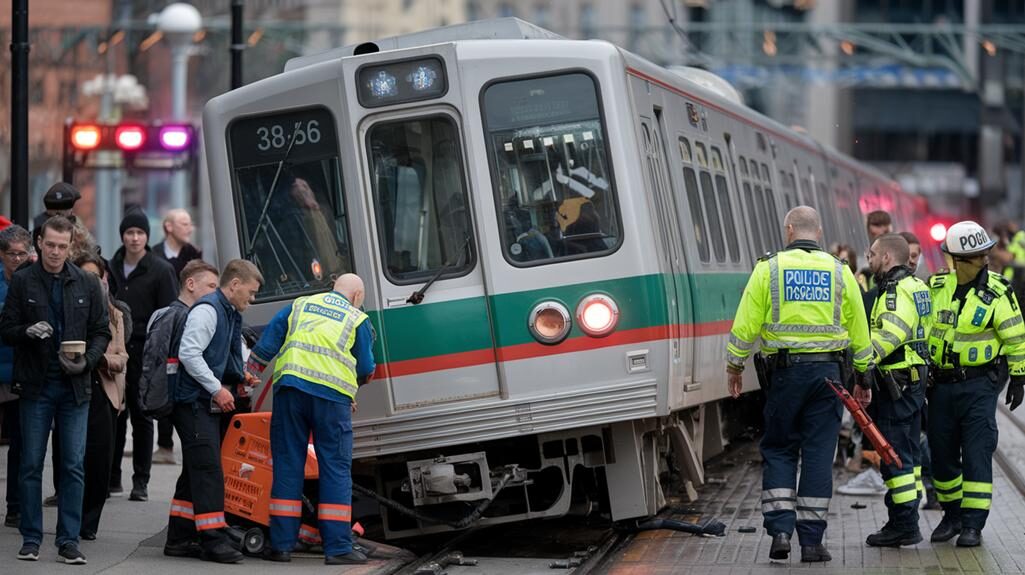Being in a car accident can be stressful and confusing, especially if you need important details from the crash report to file an insurance claim or discuss liability with another driver’s insurance company. Getting access to the official accident report from responding police is an important early step after a crash in the Boston area.
However, many people don’t know how to request this report or what to expect from the process. This article provides a quick overview of how to obtain a copy of your car accident report from the Boston Police Department, and how a car accident lawyer in Boston can help you.
We’ll explain what information the report contains and options for acquiring it, whether electronically, by mail, or in person. Armed with these tips, getting the crucial crash details you need shouldn’t be an added hassle after an already upsetting incident on the road.
Why do I Need a Police Accident Report?
The police accident report contains key details about the crash that you’ll need to provide your insurance company and others involved in any legal matters. It identifies the location, date, and time of the incident as well as factors like weather, road conditions, and who was involved.
Having the official police report protects you by backing up your version of events with an objective third-party source. It’s critical for insurance claims and determining liability, repair costs, and potential injury lawsuits down the line. The report serves as the official documentation of what happened.
More Information You Can Find in the Accident Report
A standard police accident report will contain important factual information about the crash.
- General Info: It will list the date, time, and exact location where the accident occurred.
- Vehicle details: license plate numbers, makes and models, colors, and damage descriptions.
- People involved: It will include identifying information for all involved parties, including names, addresses, dates of birth, and insurance providers.
- Outside factors: They may note factors like road conditions, weather, and light levels at the time of collision.
- Statements: An account of how the accident transpired will be summarized as well.
- Injuries: Any injuries will be listed, along with details about medical transports.
- Any citations issued: The report also indicates which party the responding officer deemed responsible based on evidence and accounts.
Having this comprehensive factual record establishes an objective timeline and understanding of what factors contributed to the crash.
Where do I Find Report Request Forms and Contact Information?
For car accidents that occurred within Boston city limits, you can obtain the police report directly from the Boston Police Department. Head to boston.gov and search for “police report request.” According to the site, you can request a report by email at policereport@pd.boston.gov.
Be sure to include your name, the names of those involved, a copy of your driver’s license or other identification, and crash details like date and location.
You can alternatively go to the BPD Public Records Unit in person. Just bring a valid copy of your driver’s license during normal operating hours. You can go to:
Boston Police Department Headquarters
Licensing Division / Public Service Unit, 1st Floor
One Schroeder Plaza
Boston, MA 02120
They are available Monday- Friday between the hours of 8:30- 4:00. For more information, you can call 617-343-4633.
How to Read Your Accident Report
Here are some of the key parts to understanding a police report:
Number Injured
It is important to verify that the “Number Injured” section of the police report accurately indicates whether you reported injuries from the accident. Insurance companies may question injury claims if the report does not include the claimant as injured.
Box 24 – Driver Contributing
The “Driver Contributing Code” details the primary reason for the collision. Common codes assigned for causes like speeding, traffic violations, or distracted driving could affect fault determination.
Common codes here may include:
2 – Exceeded speed limit
3 – Disregarding traffic signals, road markings, etc.
10 -Operating vehicle in a reckless manner
19 – Inattention
20 – Distracted
23 – Cell phone
Officer and Passenger Info
Cross-check all personal details in the “Operator/Passenger Information” against your records. Even minor errors in name, address, or date of birth could impact a claim. Likewise, the injury severity code listed should mirror your reported condition to the officer.
Injury codes in Box 32 may include:
1 – Fatal Injury
2 – Incapacitating Injury
3 – Non-Incapacitating Injury
4 – Possible Injury
5 – No Injury
99 – Unknown
Crash Diagram
The crash diagram section shows the officer’s rendering of vehicle placement and scene details. Contact us if you notice inconsistencies compared to the actual accident configuration.
Narrative
Insurers will use statements in the “Crash Narrative” portion to defend against claims, so ensure the officer’s description accurately portrays what transpired.
Hazardous Materials
The “Hazardous Materials” box on page two should correctly note whether such materials were released, not released, or unknown, to reflect the known facts of the crash.
Contact a Car Accident Law Firm in Boston Today for More Information
Obtaining and thoroughly reviewing your police accident report is an important first step if you were injured in a crash in Boston. The attorneys at Jason Stone Injury Law can help you secure the report and explain any unclear sections.
We understand the critical role this document plays in proving your injury claims and determining liability and negligence. If any information is inaccurate or incomplete, we may be able to help you.
By requesting your report promptly and partnering with an experienced personal injury lawyer, you can take quick action to protect your rights following an automobile accident. Contact us today for more information in a free consultation. Ask about our Stone Cold Guarantee.
Not Trusting What You’re Being Told?
Better Phone Stone
800-577-5188
 START MY NO OBLIGATION CONSULTATION
START MY NO OBLIGATION CONSULTATION










